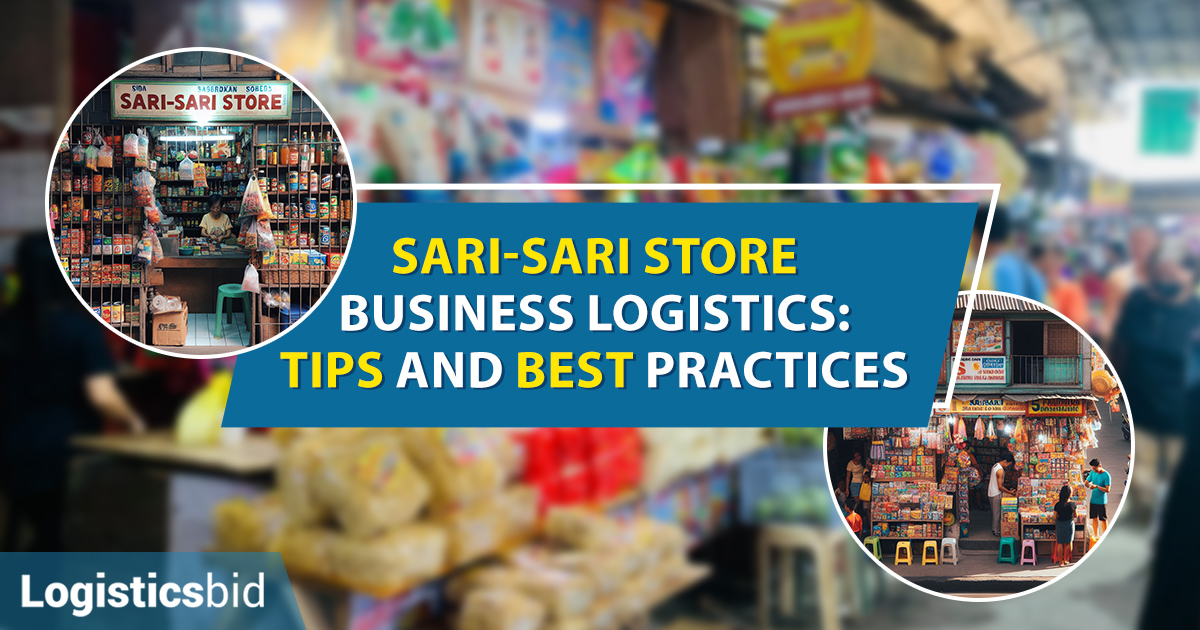
Sari-sari stores are tiny retail establishments that are frequently compared to convenience stores. These businesses are usually found on street corners here in the Philippines. The word “sari-sari” means “variety,” which describes the wide range of products and services that these stores provide. These include snacks, home supplies, and staples like rice and cooking oil.
Characteristics of Sari-Sari Store Business
Most sari-sari stores operate out of the owner’s home, with the commodities displayed through large screens or steel-barred windows. A small window allows customers to request items from inside the store.
Business Model and Profitability
Sari-sari store business typically require low capital for startup, making them an accessible venture for aspiring entrepreneurs. On average, these stores can achieve a net profit margin of around 20% when managed effectively. Many families have reported being able to fund education for their children through earnings generated by these businesses
Challenges Faced
Despite their benefits, sari-sari stores encounter significant challenges. The market is often crowded, leading to intense competition. Many stores fail due to poor management practices or inability to meet customer demands, particularly if they do not stock popular items. As a result, many sari-sari stores close within their first year of operation.
Business Logistics in Sari-Sari Store Operations
In the Filipino retail scene, sari-sari businesses are quite important, especially in rural areas where they provide vital access to necessities. Customers can save paying extra for transportation by shopping at these establishments, especially because many communities are located distance from larger markets or food stores.
Inventory Management
Store owners must frequently review product quality and expiration dates, as many items are fast-moving consumer goods with limited shelf lives. This practice ensures that products sold are fresh and minimizes waste.
Supply Chain Strategies
Sari-sari stores sometimes rely on regional suppliers for their inventory, which may involve direct business dealings with farmers and fishermen. Building strong bonds with these suppliers enables store owners to acquire necessities at more affordable rates and guarantee steady supply.
Technological Integration
The integration of technology is becoming increasingly common among sari-sari store operators. The use of mobile payment platforms such as GCash and PayMaya has enhanced customer experience by allowing cashless transactions. Additionally, online ordering systems are gaining traction, enabling customers to conveniently order goods for delivery or pickup, further streamlining operations for store owners.
Best Practices for Sari-Sari Store Business Logistics
Use of Technology in Operations
Sari-sari store owners have increasingly adopted digital solutions to streamline their operations and improve customer experience. Mobile payments, such as GCash and PayMaya, are becoming more popular, allowing customers to pay using their smartphones without cash
Inventory Management Techniques
To facilitate efficient inventory management, many sari-sari stores are now utilizing tech solutions designed for small businesses. Applications like Trailblazer’s Sales and Inventory Tracker can help save time and minimize errors in tracking stock levels. Keeping a record of products that customers frequently seek but are out of stock can also guide purchasing decisions during restocking, ensuring better customer satisfaction.
Establish Strong Supplier Relationships
Regular communication can lead to better terms, such as discounts or faster delivery times, which enhances the overall business logistics for sari-sari stores. By procuring merchandise directly from manufacturers instead of middlemen like supermarkets, sari-sari store owners can secure better prices, allowing for a more profitable markup without compromising customer affordability.
Marketing and Customer Engagement
Strategies can include leveraging social media platforms, distributing flyers, and participating in community events. Offering a variety of products and ensuring excellent customer service can create a loyal customer base.
Government Initiatives and Community Integration
Sari-sari stores often serve as essential trading centers in rural areas, facilitating transactions between local farmers and fishermen, and thus reducing transportation costs for consumers.
Government initiatives that support small business owners in this sector can enhance their operational capabilities, allowing for improved inventory and supply chain management. By aligning with local community needs and government programs, sari-sari store owners can optimize their business logistics and become integral to their neighborhoods.
Delivery Service for Sari-Sari Store Business Logistics
Check the popular delivery service providers today that retail businesses utilizes when it come to its logistics.
Transportify: Extensive Fleet for Diverse Needs

Transportify leverages a large network of independent contractors and fleet owners, rather than maintaining a traditional employee-based fleet. This strategy enhances flexibility and scalability, crucial for adapting to varying demand levels. Transportify’s fleet in the Philippines is notably diverse, equipped with vehicles tailored for both retail and heavy-duty needs. This includes open trucks, closed vans, pickups, and canopy multicabs available in key cities like Cebu and Davao. For larger loads, they offer 6-wheeler forward trucks and up to 10-wheeler wing van trucks, ensuring that even substantial retail shipments are transported safely and efficiently.
Lalamove: Tailored for Quick, Smaller Deliveries

Specializing in rapid delivery services, Lalamove manages a versatile fleet that ranges from motorcycles to trucks capable of hauling up to 12,000 kg. This makes it an excellent option for retail businesses that need quick delivery of smaller quantities of goods. While Lalamove doesn’t provide open trucks or pickups suitable for transporting oversized items, its ability to handle significant weight with its larger trucks offers a substantial benefit for transporting bulk retail items swiftly across urban settings.
Both Transportify and Lalamove present robust solutions for sari-sari stores, each with unique strengths that cater to the specific logistics needs of small to medium-sized retail businesses. Whether it’s delivering a single box of goods or a truckload, these providers help ensure that retail operations remain as seamless as possible.
